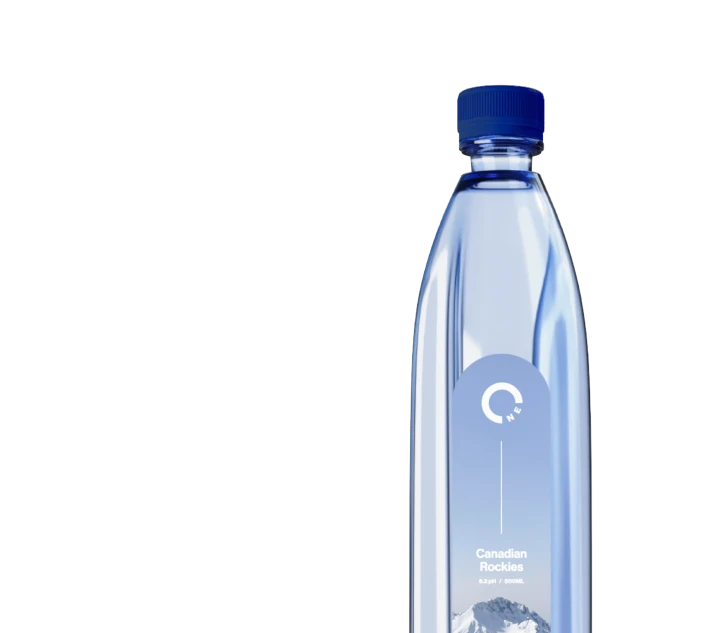Choosing the right bottled water for daily use takes more than just grabbing a bottle off the shelf.
With growing concerns about environmental impact, varying water sources, and marketing buzzwords like “alkaline” or “purified,” it’s essential to understand what truly matters when hydrating daily.
Whether you’re optimizing wellness, managing a busy lifestyle, or seeking a premium and sustainable choice, this guide breaks down how to find bottled water that aligns with your goals.
Why Your Daily Water Choice Matters
Staying hydrated isn’t just about quenching thirst. It’s essential for how you feel and function every day.
From supporting memory and mood to helping your body regulate temperature and absorb essential nutrients, water is essential to maintaining your overall health. If bottled water is part of your daily routine, the brand you choose matters.
The source of the water, how it’s filtered, and even the bottle it comes in can affect everything from taste and quality to the sustainability of your choice.
Understanding Bottled Water Types
When evaluating bottled water, it helps to understand what you’re drinking. Here’s a quick breakdown:
Spring Water
Drawn from a natural underground source, spring water is often minimally processed and retains its mineral content. The taste can vary depending on its origin, but many find it cleaner and more refreshing than other types of bottled water.
Purified Water
This water goes through advanced filtration (like reverse osmosis or distillation) to remove impurities. While extremely clean, it may lack the unique flavors of the natural minerals found in spring or mineral waters.
Mineral Water
Sourced from mineral-rich springs, this type contains a higher concentration of dissolved solids like calcium and magnesium. Some consumers seek it for its taste and potential health benefits.
Alkaline Water
Touted for its elevated pH level, alkaline water may help neutralize acid in the body. However, research is still emerging, and benefits may vary depending on the brand and processing method.
Packaging Materials and Sustainability Impact
Choosing bottled water also means choosing its packaging, and that choice has long-term effects on the world around you.
Plastic Bottles
Plastic remains the most common material used for bottled water packaging due to its convenience and low cost.
However, it’s often single-use and contributes heavily to landfills and ocean waste. It’s vital to find a fully recyclable option to offset the environmental impact.
Glass Bottles
Glass is fully recyclable and provides a more premium feel compared to most plastic options.
While it’s heavier (resulting in more emissions during shipping), it’s often preferred for use at home or in specialized applications.
Another benefit of glass bottles is that they are also reusable, provided they are handled with care.
Aluminum Bottles
Aluminum bottles are valued for their durability and recyclability, and are often seen as a more sustainable alternative to plastic.
However, many include a BPA-free liner to prevent metallic taste and preserve water quality.
These liners are typically made from plastic, which means aluminum packaging may still contribute to plastic use in subtle ways.
What to Prioritize in Bottled Water
No packaging is perfect. But have the most sustainable habit possible, but you can prioritize:
- Recyclability
- Company transparency about sourcing and waste
- Carbon footprint of shipping and materials
- Reuse potential and product design
One Water’s snap-to-stack interlocking bottles, for example, are designed to reduce shipping emissions by up to 35% without sacrificing shelf presence or premium quality, and they are fully recyclable, reusable, and BPA-free.
Evaluating Water Quality and Safety
While taste is a key factor, it’s worth examining the sourcing and verification process of bottled water in more detail. Brands that openly disclose their water source offer a level of transparency that builds trust.
Reputable certifications, such as those from IBWA or NSF, also serve as indicators of rigorous quality standards.
You should also investigate whether the minerals in your water are naturally occurring or added during the processing. These subtle distinctions can shape both taste and confidence in what you’re drinking.
Environmental and Lifestyle Considerations
If you care about sustainability, think beyond the bottle itself. How far the water travels, whether the packaging can be recycled or reused, and the brand’s commitment to reducing its footprint all matter.
Convenience doesn’t have to come at the cost of environmental consciousness.
With more brands innovating around packaging and logistics, it’s easier than ever to find an option that suits your pace without compromising your principles.
Choose the Best Bottled Water for Your Body and Your Lifestyle
Ultimately, the best bottled water for daily use is one that fits your routine and values.
For some, it’s about consistent hydration; for others, it’s about making a thoughtful choice that reflects a deeper commitment to health and the planet.
One Water’s globally sourced, minimally processed spring water is designed to meet all three criteria: purity, sustainability, and premium experience.
Ready to upgrade your daily hydration? Experience the difference of premium spring water with One Water.




